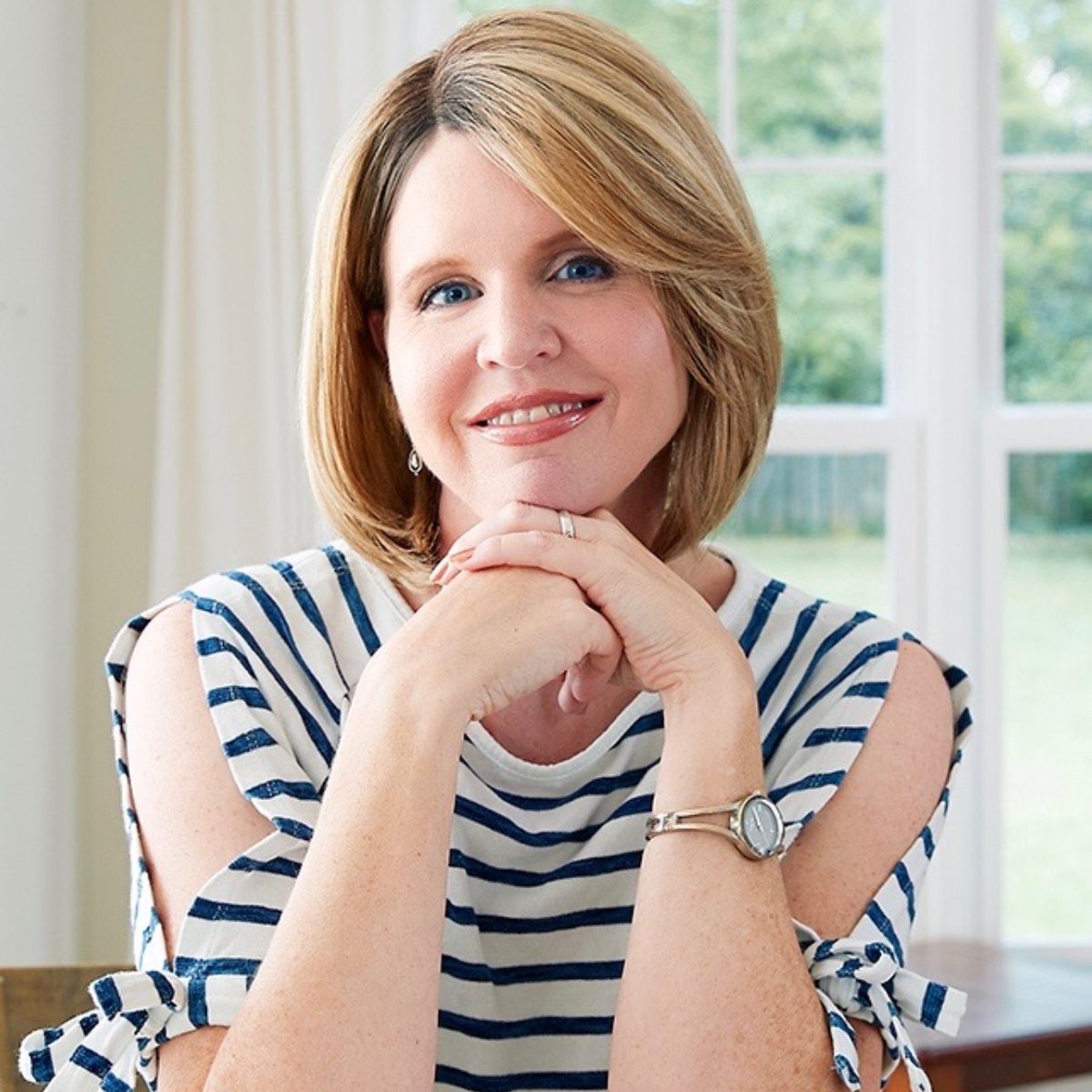5 Reasons You Should Teach Your Kids about Other Worldviews

A few weeks ago, I was teaching some students the definition of a concept that one of the kids didn’t believe in. And honestly, I didn’t believe in it either. The kid eventually asked me, “Why do we need to learn this definition if we don’t believe it?”
And I said, “THAT—is a great question.”
Why indeed!
That question applies to the topic of worldviews. Why do we as Christians want to teach our kids other worldviews if we don’t believe them?

Some might argue that we should just teach our kids about the principles of the Christian faith and ignore other worldviews. Isn’t knowing the truth enough?
I don’t think so. I’m going to give you FIVE reasons why we want to teach our kids other worldviews.
But first, I want to share a story that will set the stage for this topic.
A life lesson from a high-pressure salesman:
About ten years ago, we were in the market for a new water filtration system. Right around that time, we met this guy who just happened to sell exactly what we were looking for. He gave us a phenomenal pitch. We were convinced that we needed what he was selling. But then the guy proceeded with what was the kiss of death for the sale, at least for us. He said, “If you act now, you can get the entire system for this incredibly low price. But tomorrow the price will go up to…”
Now, my husband and I have always made it a point to never purchase something from a high-pressure salesperson. Ever. When someone starts using aggressive sales tactics, we walk away.
So, I shook my head and told the guy, “Ahh man… you were on the 5-yard line, and you fumbled. Because we are not the kind of customers who are going to respond to that kind of sales tactic. And it’s a shame, because it looks like you have a really great product that we would like to consider. But whenever we make a major purchase, we do our research. We compare and contrast. We find the best deal. And if someone’s deal has an immediate expiration date on it, that tells me your company doesn’t trust its product enough to appeal to an educated consumer. And you probably don’t have the best deal out there. And if you aren’t that confident in your product, we don’t want it.”
So, we walked away. And we found another water filtration system for a lot less.
Some ministers and parents peddle the Christian faith like a high-pressure salesman.
But here’s the thing… some ministers and some parents use that same kind of sales tactic with the Christian faith.
“You need to act now in order to avoid hell and please God!”
We need to share our faith with our kids, not sell it.
But some parents want their kids to make a decision right now. These parents hope their child’s decision will somehow stick for the next 60 or 70 years, and that they won’t have buyer’s remorse. Parents who sell the faith are afraid that their kids are going to be tempted by something false or fake. Because of that fear, they don’t want their kids to examine any other faiths. They don’t want them to explore other worldviews.
I think that mentality is really dangerous for many reasons. Here are five reasons why you want to teach your kids about other worldviews:
REASON # 1: You don’t want to mandate the Christian faith like a cult.
If you have the truth, and you should believe that you do with the Christian worldview, otherwise you shouldn’t believe it, then you must be confident that it will withstand a rigorous inquiry. If our faith doesn’t stand up to the false ideology of our day, if it doesn’t stand up to other worldviews, then it either isn’t true, or we don’t really know what we believe. At least not well enough.
And consider this: the only belief systems that don’t allow you to consider other ideas, other faiths, other worldviews—are cults. And our culture. Yes, our culture does this as well. There is one prescribed way of thinking and you better get on board with it you or you will be canceled. That is how our culture operates now. There is no robust exchange of thought and ideas. There is no rigorous inquiry. You must agree or you will be labeled something nasty. That is the M.O. of our culture.
The other day, I had an epiphany about our current culture that cracked me up. The word culture has the word cult in it. Yeah, it’s right there—the first four letters. Is that a coincidence? I think not. Our culture has the word cult in it and it acts like a cult. Go figure.
What makes something a cult? There is no diversity of thought. There is a lack of intellectual inquiry, a lack of freedom. So, unfortunately, some people have taken the truths of Scripture and mandated them like a cult. They have mandated belief in the Christian God like a cult.
We don’t want to do that. We always want to preserve freedom. God is a God of freedom. The second you take that freedom away, you have misrepresented God and the Christian faith.
Read that last sentence again. It’s worth a double-take.
REASON # 2: Your kids are going to learn other worldviews anyway.
In a society that is so in your face, where you can learn everything about absolutely anything with the click of a mouse, your kids are going to get exposed to false worldviews whether you want them to or not. We don’t live in a Little House on the Prairie anymore. We haven’t for a very long time.
So, wouldn’t it be better if your kids got this exposure in your home, under your direction and tutelage, so you could offer your ideas? Wouldn’t it be best if their faith was challenged while they are still under your roof? Because their faith is going to get challenged—and that is a good thing. We want our kid’s faith to be challenged. Resistance creates strength. Lack of resistance creates a wimpy, flabby faith.
We need to realize that our kids are going to be challenged far more than generations past because we live in a post-Christian culture now. We want our kids to expect this challenge in life, and we want them to be equipped to meet it. We want them to embrace it.
REASON #3: You don’t want your kids to be ignorant.
The Apostle Peter said that you should always be “ready to make a defense to everyone who asks you to give an account for the hope that is in you.” (1 Peter 3:15) But it’s hard to defend that hope, that faith, if we don’t know what we are defending the faith against.
In a court of law, the defense attorney always wants to know where the prosecutor is coming from. A good defense attorney will anticipate what the prosecutor’s arguments are going to be, and they will prepare a response in advance.
And make no mistake about it—our faith is being prosecuted in our culture today.
If we want our kids to stand firm in the faith, we must help them to mount a solid defense; we must train them to anticipate the arguments that will come against their faith. We must carefully examine other worldviews that want to convict the Christian worldview. We must prepare our kids for that attack, because they are going to get it. We must demonstrate how the Christian position is sound, logical, reasonable, accurate, and defendable. We must show how it is filled with hope, grace, and most of all, truth.
Jesus told us to be “be wise as serpents and harmless as doves.” (Matthew 10:16) Isn’t that interesting? Jesus tells us to be wise just like our enemy is wise, while remaining innocent.
Our enemy knows what we believe, oftentimes better than we do. We don’t want our kids to be ignorant, because a worldview that is ignorant of other worldviews has a fatal flaw in its foundation. And that kind of faith is a sitting duck for the enemy.
REASON #4: This is part of our calling as believers.
The last words that Jesus gave us before leaving this earth are called the Great Commission. He commissioned us to go into all the earth and preach the Gospel, to preach the Good News, to share this incredible Christian worldview with the rest of the world.
When we prevent our kids from learning about other worldviews, we prevent them from effectively participating in the Great Commission.
How is that?
The goal of Christianity isn’t to get to the end of our lives with just our own faith intact. We are called to make disciples of ALL people. We are called to reach ALL of God’s children. And you can’t do that if you don’t know what they believe.
The Apostle Paul said, “I have become all things to all people so that by all possible means I might save some..” 1 Cor. 9:22
What Paul meant is that he would speak the language of other people and use their own philosophies, ideas, and culture in order to share the Christian faith. In other words, he used their worldview to communicate the Christian worldview.
We want our kids to be prepared to do that. But they can’t do that if they don’t know what other people believe, if they haven’t examined other ways of thinking, other cultures, and other worldviews.
REASON #5: It will build your kids’ trust in you.
Yep, it will build your kids’ trust in you when you show them that you aren’t afraid of them learning about other worldviews, that you aren’t afraid of them doing some comparison shopping. We don’t want to be those high-pressure salesmen when it comes to our kid’s faith, or anything really.
If we want the faith to stick in our kids’ lives, if we want it to grow and mature, it must be their own. They must choose it—not because we want it for them, but because they want it for themselves.
And as parents, we want to remain an open door. We want our kids to know that they can come to us with their confusion and their doubts, that we are a safe place for our kids to have those conversations. Because when they get out on their own, they are going to have those conversations with someone. As a parent, you want one of those someones to be you.
If your kids know that you aren’t afraid of their questions and you won’t condemn them for their doubts, they are far more likely to ask you, to seek your advice, to come to you with their uncertainty. They are more likely to keep that door open.
Your kids need a solid Biblical foundation to withstand the false ideologies assaulting them in our culture, and part of that preparation is understanding other worldviews. Build that foundation for your kid’s faith—knowing that the storms will come. But also know that with your diligent teaching, with your Spirit-led conversations, with your open-door policy, and with your fervent prayer—that the foundation you helped build in their lives can stand.
To hear more about how to prepare your kids to stand strong in the faith, check out CHRISTIAN PARENT/CRAZY WORLD. Upcoming episodes will address what worldviews are vying for your kids’ faith, evidence for the existence of God, and how we can know that the Bible is true.

Listen to Catherine's FREE Christian Apologetics Podcast for Parents - Christian Parent, Crazy World, available now at LifeAudio.com!
Originally published April 26, 2021.








